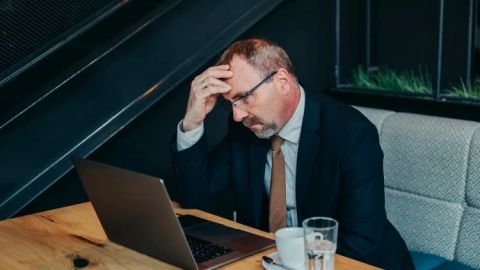OPINION: Defeating the Pandemic Means Confronting Ageism and Ableism

Credit: Adobe
By Ashton Applewhite 2016 Influencer of the Year
(Read all of Next Avenue’s COVID-19 coverage geared toward keeping older generations informed, safe and prepared.)
Across caregiving and community, business and intergenerational attitudes, the pandemic and how we respond to it could change us forever. Next Avenue turned to some of our Influencers in Aging, a diverse group of thought leaders, for their insights, counsel and opinions of what could lie ahead — if we choose.
Why is the coronavirus spreading across the U.S.? Not because a virulent molecule jumped from an animal into a human. Not because of China, or selfish youngers and clueless olders. COVID-19 is spreading because the virus is new and contagious. We have a hospital system crippled by decades of cost-cutting, underfunding and chronic understaffing by underpaid workers.
The hashtag #NotDyingForWallStreet is trending as people recognize the implications of President Trump’s calls to end the lockdown soon, which infectious disease experts strongly recommend against.
We are engaged in a massive collective experiment to protect the vulnerable, whoever they turn out to be. It’s high stakes, and it’s as intersectional as it can get.
Never have ageism and ableism (discrimination in favor of able-bodied people) been so glaringly exposed.
‘Underlying Health Plays a Much Bigger Role than Age Does’
We olders are more at risk from COVID-19. That’s biology, not bias. Our immune systems are weaker, our lungs less elastic and we’re more likely to have underlying conditions — such as heart disease, lung disease and diabetes — that make us more vulnerable to other illnesses and slower to recover.
This doesn’t mean that the day someone turns 65, they’re at higher risk. It also says very little about what any given individual is up against when it comes to getting sick or getting better. Underlying health plays a much bigger role than age does. And while older people do have more health issues, plenty are in excellent health and plenty of young people are immune-suppressed and/or live with chronic disease.
The most dangerous manifestation of ageism during the pandemic is the suggestion of an age limit for medical treatment, so it won’t be “wasted.” A public health emergency can indeed make it necessary to allocate resources by health status. That’s triage.
But as I wrote earlier, “Allocating resources by age, under any circumstances, is not triage. It is ageism at its most lethal.”
I’ve since come to understand that when hospitals get completely overwhelmed, as has happened in Italy and is likely in the U.S. very soon, people on the front lines have to make hideous decisions, very fast, about which of the many people in dire condition are likely to benefit most from getting, say, the only available ventilator.
These decisions involve a complex ethical and moral calculus, beautifully delineated in this GeriPal podcast. Age is way quicker to assess than health status, and advanced age is a clear disadvantage under these circumstances. Boom. Such decisions are tragic, horrible, wrong, and — under these conditions — sometimes necessary. I sure don’t envy the heroic people making them in hospitals today.
Pushing Back Against Social Bias
In every other context, it’s up to the rest of us to push back against every form of social bias. Are testing and outreach prioritizing men over women, white people over people of color, youngers over older, cis people over trans? Are we including the most exposed — not just olders, but people with disabilities and those who are homeless or incarcerated — in our efforts?
We are engaged in a massive collective experiment to protect the vulnerable, whoever they turn out to be. It’s high stakes, and it’s as intersectional as it can get. We are truly all in this together.
This story is part of our partnership with Next Avenue. Next Avenue is public media’s first and only national journalism service for America’s booming older population. Their daily content delivers vital ideas, context and perspectives on issues that matter most as we age.

























